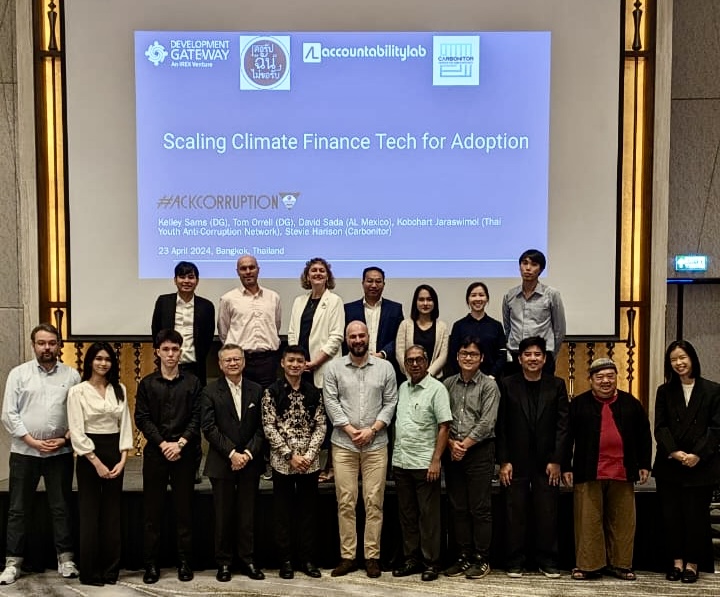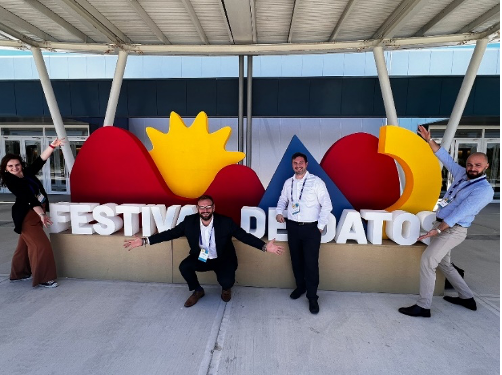One Small Step for Development
The voices that yell “aid is broken” are varied, and while you may or may not agree with that full statement, there is definitely room for improvement. As an example, a rather in-depth article on the Carnegie Endowment for International Peace dove into how a needed change is starting to take place in development to start bridging the gap between the promotion of accountability, transparency, participation and inclusion, and actually making these principles a foundation of practice. In the midst of marking the United Nations’ World Development Information Day and keeping in mind the progress the development community has made in embracing methods to promote such tenets, we know that we are still not quite there yet.
However, we are getting closer. USAID recently announced the release of an open data policy, the Automated Directives System 579. Don’t let that number confuse you, this is the first time USAID has had an open data policy, and it starts out strong by requiring all USAID staff and implementing partners submit all datasets generated with USAID funding be submitted in machine-readable format to the Development Data Library. The release mentions that, “USAID is committed to treating its data not simply as an output of Agency efforts, but as precious “development capital” that can best serve the global good when widely shared.”
USAID isn’t the only one making strides to improve practices, DFID developed the “Smart Rules” this year to make their operating framework more principles based,increase ownership and engagement across DFID, remove generic mandatory compliance tasks (you can almost hear the shout of Woohoo! for that one), simplifying the mandatory rules they can’t get rid of, creating space for frontline staff to be innovative, take risks and adapt to realities on the ground.
That last part is so important and goes along with making actors feel ownership and engagement in the process, and unfortunately is not often standard. Right along with these trends within organizations, is the ODI’s series of events focused on doing development differently. They have created a Storify about the series so far and you can follow the twitter hashtag #differentdev to follow along.
As we make progress, it’s important to remember that not everything will turn out exactly how we picture it, and we might not immediately achieve the goals and dreams we work so hard for, but that doesn’t mean that no progress is being made at all. DataScience LTD recently made this point in relation to the Kenya Open Data Initiative. In the face of those who have declared the initiative as dead, the company points out all the positive change that the initiative has made, and is still making. It might not be the magic bullet (it never is though is it?) but it might be the ladder that leads to higher ground.
This piece was originally published on AidData’s The First Tranche.
Share This Post
Related from our library

The Future of Technology Governance and Global Development: Why DG Brought DataReady In-house
DG is excited to announce we now have more robust data governance advisory services with the recent integration of DataReady.

Letting the Sunshine in: Building Inclusive, Accountable, and Equitable Climate Finance Ecosystems
In April, DG, HackCorruption, and the Thai Youth Anti-Corruption Network hosted a roundtable in Bangkok to discuss climate financing. This blog explores the main takeaway: a multi-disciplinary and multi-stakeholder approach that prioritizes local contexts, inclusive governance, transparency, accountability, and equitable distribution of resources is essential to impactful climate financing.

Developing Data Systems: Five Issues IREX and DG Explored at Festival de Datos
IREX and Development Gateway: An IREX Venture participated in Festival de Datos from November 7-9, 2023. In this blog, Philip Davidovich, Annie Kilroy, Josh Powell, and Tom Orrell explore five key issues discussed at Festival de Datos on advancing data systems and how IREX and DG are meeting these challenges.